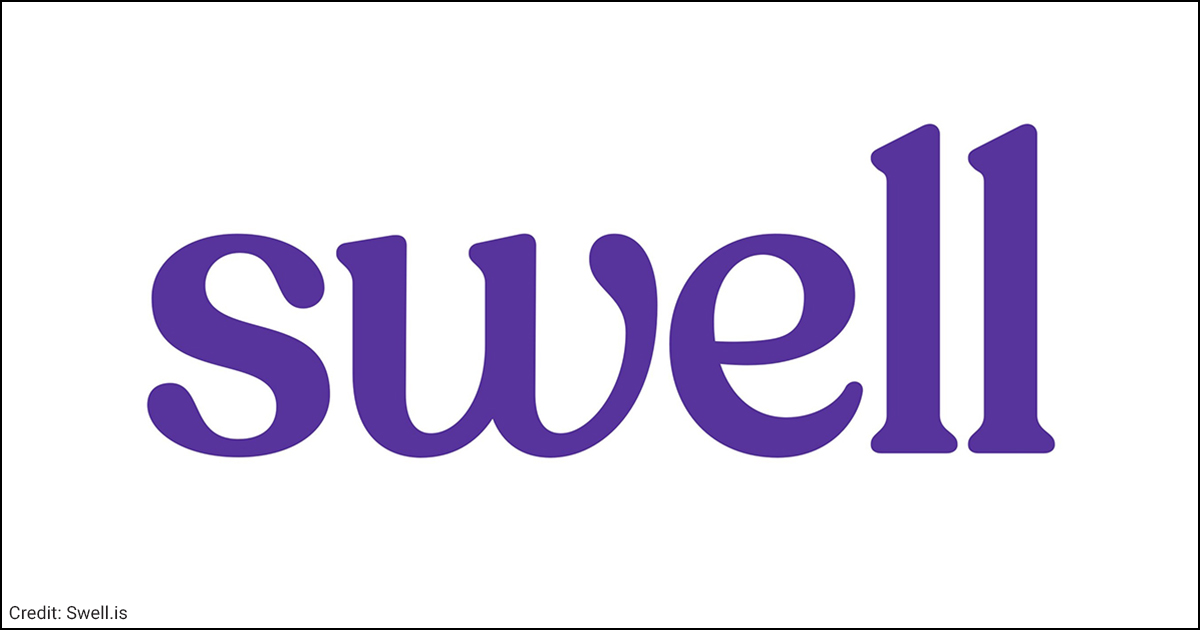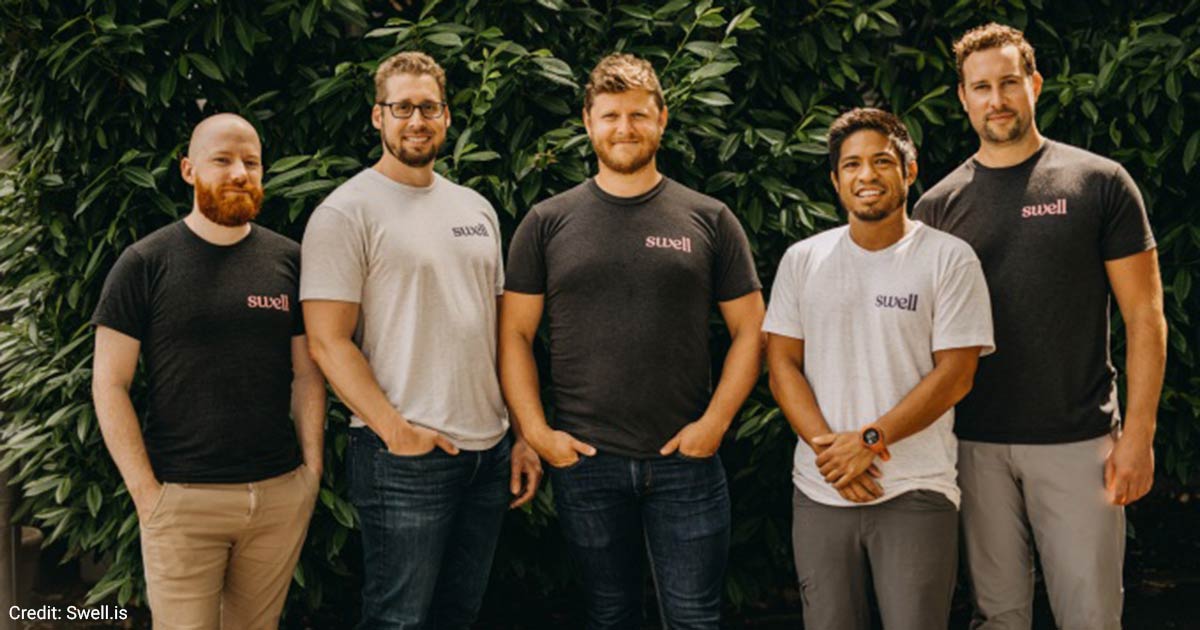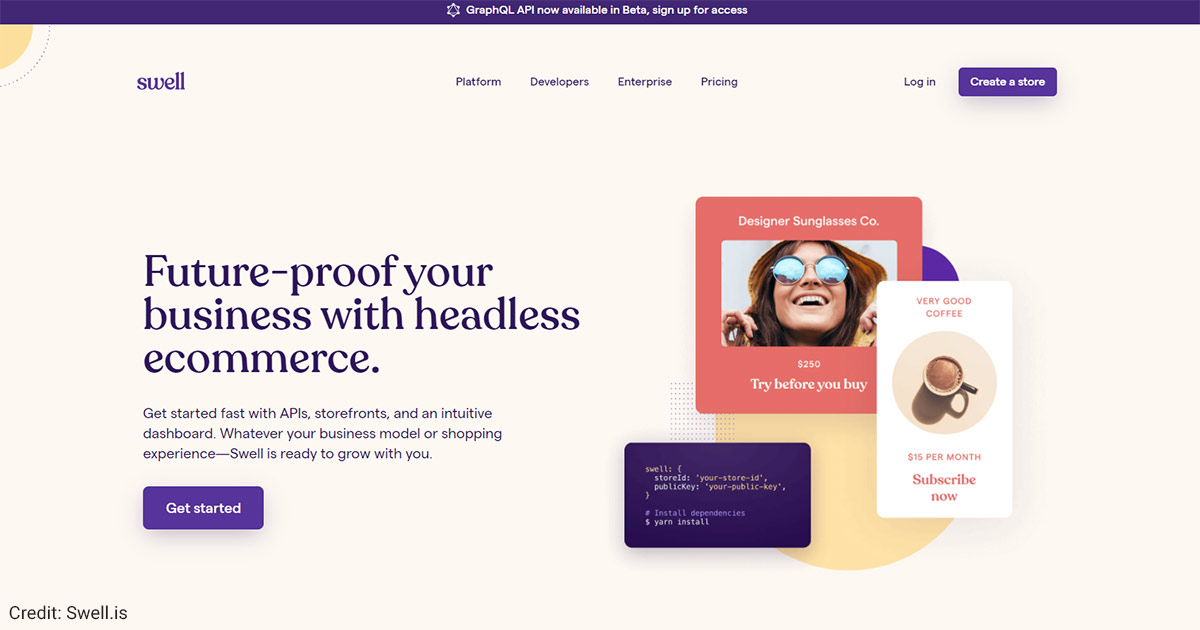Swell Profile

Last Updated: By TRUiC Team
Built for ecommerce companies, Swell is a platform empowering merchants, developers, and agencies with the resources to optimize their sales.
Interview With Eric Ingram
Describe your product or service:
“Swell is an ecommerce platform that gives merchants, developers, and agencies around the world the tools and infrastructure to sell on the internet the way they want. From new startups to large enterprises, Swell's customizable backend enables the creation of innovative shopping experiences today, and is ready for what comes next.”
Describe your company values and mission:
“We're a globally distributed team with a mission to make online commerce easy for every business model in existence. The majority of commerce still takes place offline, and we believe that with the right foundation and developer platform, Swell can reduce barriers and enable a new wave of online sellers, making ecommerce accessible to everyone.”
How are you funded? I.e. type of funding, number of funding rounds, total funding amount.
“Swell has raised a total of $24 million in venture capital, with the latest being our Series A in January 2022.”
How big is your team? Tell us a little about them (I.e. co-founders, freelancers, etc.)
“We're 40 today and growing quickly, with plans to reach over 100 team members in 2022.”
How did you come up with and validate your startup idea? Tell us the story!
“In 2008, I started an ecommerce business where we wanted to create a dramatically better customer journey in our category. We quickly realized the only way to fully control the user experience was to own the ecommerce backend, which meant building it from the ground up. That worked, but it slowed us down. I thought there had to be a better way.
Eventually, we came up with a unique architecture that could solve this problem by providing complete control of the backend while at the same time providing the tools and functionality to get started quickly. With enough early customer feedback, we validated the approach would scale and decided to raise venture capital to take it to the next level.”
How did you come up with your startup's name? Did you have other names you considered?
“We went through several names over the period of time that we bootstrapped the product. The idea for Swell initially came up as a combination of the words ‘sell well.’ We liked how short and relevant it seemed, and the rest is history.”
Did you always want to start your own business? What made you want to become an entrepreneur?
“Looking back, I felt a pull toward entrepreneurship even long before I knew what it meant. It's incredibly rewarding to have an impact on the lives of people that use a product you create. It's that impact and the ability to express creativity while building something people love that has always drawn me to it.”
Feeling inspired? Learn how to launch your company with our guide on how to start a startup.
Did you encounter any roadblocks when launching your startup? If so, what were they and what did you do to solve them?
“It's a competitive space, where legacy platforms have a huge leg up on integrations and partnerships. The amount of engineering required to meet the expectations of merchants today was the biggest challenge, but with persistence and the realization that no one was going to do it if not us, we made it through.”
Who is your target market? How did you establish the right market for your startup?
“We wanted to create a solution that anyone could use and knew it had to be a self-serve SaaS product. Startup entrepreneurs that experienced the same problem we did and the opportunity our product could offer them, was a key motivation. However, early on, we realized how big the problem really is and how larger companies needed our solution.
Today we see that Swell solves a huge problem for both new startups and large enterprises, and that has shaped our approach to marketing and the long-term opportunity we're after.”
What's your marketing strategy?
“We believe in creating high-quality content, amplified through word of mouth, events, and channels that are most relevant to early adopters.”
How did you acquire your first 100 customers?
“Initially, our users spread the word, and opportunities came inbound and from referrals. Once we launched on ProductHunt, the inbound flow accelerated to get us our first 100 customers.”
What are the key customer metrics / unit economics / KPIs you pay attention to to monitor the health of your business?
“As an API-first ecommerce platform, API usage is a leading growth indicator. As a modern SaaS business, we closely monitor ARR and churn.”
What's your favorite startup book and podcast?
“‘The Hard Thing About Hard Things’ is an exciting and eye-opening read. As far as podcasts go, the list is long, but ‘This Week In Startups’ has probably the best mix of founder interviews and current events.”
Is there a tool, app, or resource that you swear by to help run your startup?
“Gitlab has such a deep and flexible feature base and [has] been one of the most important tools for our product and engineering teams. I'd swear by it.”
What is something that surprised you about entrepreneurship?
“Just how important it is to work on something you truly believe in.”
How do you achieve work/life balance as a founder?
“Once I accepted it was going to take time and that burnout was a big risk, I decided to prioritize balance in and of itself. Everyone has their own definition of work/life balance, but for me, it was important to be able to take time with family on a consistent basis. Without their support, I could not have made it this far as a founder.”
What is a strategy you use to stay productive and focused?
“I start work early in the morning and take time to plan and address important issues before the meetings and team requests start rolling in.”
Did you have to develop any habits that helped lead you to success? If so, what are they?
“Any time I travel, I would listen to podcasts with other founders and absorb as much of their story as possible. I never counted, but it probably adds up to thousands of interviews. That helped me stay motivated early on and learn tactics that I would end up using many times.”
What was your first job and what did it teach you?
“My first job was as a graphic designer at the age of 16. Since I hadn't been professionally trained, it taught me that I could learn and do almost anything in the internet world with enough self-motivation.”
Recommended:
- Keep up with more startup companies by visiting our list of the top startups to watch.
- Hear startup stories from real founders on the Startup Savants podcast.
- Form your own startup by reading our review of the best online incorporation services.
Tell Us Your Startup Story
Are you a startup founder and want to share your entrepreneurial journey withh our readers? Click below to contact us today!
More on Swell

Founder of Software Startup Swell Shares Their Top Insights
Eric Ingram, founder of software startup Swell, shared valuable insights during our interview that will inspire and motivate aspiring entrepreneurs.

Here’s How You Can Support Software Startup Swell
We asked Eric Ingram, founder of Swell, to share the most impactful ways to support their startup, and this is what they had to say.


